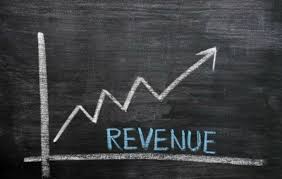A frequently asked question in the field is what is revenue management? As Wikipedia give the answer Revenue Management is the application of disciplined analytics that predict consumer behavior at the micro-market level and optimize product availability and price to maximize revenue growth. The primary aim of hotel Revenue Management is selling the right product to the right customer at the right time for the right price. The essence of this discipline is in understanding customers’ perception of product value and accurately aligning product prices, placement and availability with each customer segment.
The roadmap to success:
Step 1. Data Collection
Relevant set of information will provide the hotelier with accurate data which is collected in the hotel’s PMS system. Most information is historical information which tells us about the hotel revenue received in the past. Historical data for inventory, prices, demand, and other causal factors. The information will tell you something about the room type offered, the room rate paid, amount of night staid and even the preferences of your guests.
Information about customer behavior is a valuable asset that can reveal consumer behavioral patterns, the impact of competitors’ actions, and other important market information.
Step 2. Market Segmentation
Your guest can defined in certain categories of guests, based on nationality, spending pattern, travel period, average stay, etc. This information is needed to further implement a pricing strategy for your target market. With Hospitality Revenue Management we try to define the value of the room type and match this with the guest’s willingness to pay for this value. This would help us to optimize the maximum hotel revenue which can be achieved from each market segment. Once we have determined the price of the product as well as the market segments, we can start forecasting our potential revenue.
Step 3. Forecasting
To create our forecast or budget plan, we would need the information as the total inventory available in the hotel, the market share of the hotels revenue of the total market and the demand for the hotel and their rooms. The success of revenue management only can be measured, once a budget plan has been agreed upfront.
Step 4. Managing your revenues
During the process we continuously keep our focus on the budget plan as well as trends in bookings, cancellations and no shows. Demand is market driven and therefor predictable due to facts available in the market. (Consumer sentiment, macro economic developments, weather conditions, political changes, exchange rates, etc) We can anticipate in this market situation by implementing packages, promotions, seasonality so we can see how our market respond to these activities and we can be more accurate once an event takes place.
This is a form of dynamic pricing, offering the right price at the right time to the right customer in order to maximize the Hotels Revenue. The dynamic market movement makes this job very interesting. Revenue manager need to be continuously aware of developments and have to create action to create new opportunities and improving revenue, continuously asking the two questions, to whom we sell and at what rate. A revenue manager must decide between optimizing prices, total sales, contribution margins, or even customer lifetime values. In addition, the revenue manager has to decide which optimization technique it will use to optimize the revenue stream to achieve the highest revenue possible.






